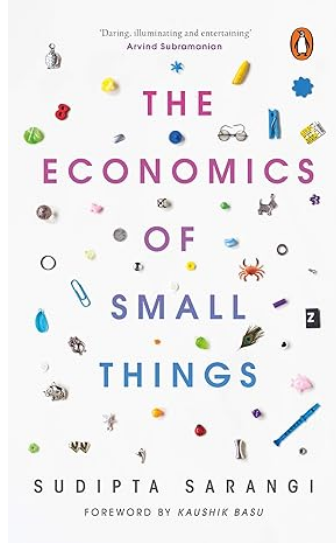
The Economics of Small Things by Sudipta Sarangi, presents intriguing scholarly ideas through relatable and often amusing examples.
Book Details
Genre: Economics, Nonfiction
Ages: 12+
Publisher: Penguin
Buy From amazon India
Price: Rs. 188.33 for Kindle edition, and Rs. 250.00 for the paperback
Quote
He turned to his wife and with a lot of feeling remarked that it was no longer possible to get great tea in Assam. She concurred and very matter-of-factly added that the best tea is exported anyway. Why did this happen ...
Synopsis
The Economics of Small Things by Sudipta Sarangi, presents various examples where the concepts of economics have been applied to everyday life. It examines various minor puzzles in routine life and searches for answers in economic theory. However, in many cases, no thorough or conclusive answers are presented.
The author, like an inquisitive toddler, questions the mundane issues, most of us just accept as a matter of fact. He then proceeds to suggest plausible answers. Not all of the answers are convincing, but they usually serve to present an unusual perspective or suggest new possible approaches to tackling the question. Most of all, the book encourages us to rethink the simplest of things we take for granted and re-examine them by exploring subtle links and correlations with other phenomena or processes that might be easily overlooked to reveal startling possibilities.
Highlights
The conversational story telling style in which the material is presented makes the esoteric content relatable and engaging.
I was a graduate student in the US from 2003 to 2009, and many of the situations analyzed were so relatable, it made me nostalgic, especially the price differentiation example explained using late fees on Blockbuster video rentals. The missing mangoes too brought back memories. While most desi students visited India in the winter break, I used to come in the summers so I could get my annual quota of Indian mangoes.
Not all questions have easy answers, but that mustn't stop us from asking the questions, pondering on them, and considering unorthodox solutions. That’s what the book conveyed to me.
The narration of some of the examples explored is downright funny. My favorite being, the chappalchori story. Aren’t you intrigued ...
Cheeky questions can unearth curious connections.